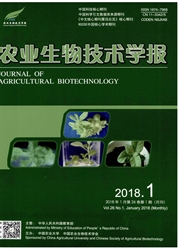

 中文摘要:
中文摘要:
全基因组测序(whole genome sequencing,WGS)是指通过高通量测序技术对物种个体或群体的基因组进行测序,并通过生物信息学技术对序列特征进行分析,以在全基因组水平探究物种的进化规律和筛选功能基因,主要包括从头测序(de novo)和重测序(re-sequencing)。WGS具有信息全面、精确、高效等优点,尤其能对未知基因和未知结构变异进行高效探索,随着高通量测序技术的发展,WGS成本快速降低,使其迅速超越传统策略,成为当前群体进化分析和功能基因挖掘的最主要研究策略,并在畜禽中得到广泛应用。目前已经对鸡(Gallus gallus)、猪(Sus scrofa)、牛(Bos taurus)、绵羊(Ovis aries)、山羊(Capra hircus)、马(Equus caballus)、鸭(Anas platyrhynchos)和狗(Canis lupus)等畜禽进行了大量WGS研究,探究了畜禽进化规律,并挖掘出许多关键功能基因。此外,WGS在未来畜禽泛基因组的构建和全基因组选择育种中也将有广泛的应用。本文主要对WGS的特征和发展进行了介绍,概述和讨论了其在畜禽群体进化和功能基因挖掘中的应用,并简述了其关键要点和应用前景,以期为WGS在畜禽中得到进一步的应用提供理论参考。
 英文摘要:
英文摘要:
Whole genome sequencing(WGS) is a sequencing of one individual or group of species by highthroughput sequencing technology, and analyses the sequence features by bioinformatics. The aim of WGS is exploring the evolution rule and screening functional genes in genome wide. It includes de novo and resequencing. Because its full-information, accurate, efficient, especially effect in finding of unknown gene and unknown structural variation, it quickly surpass the previous technologies to become a major strategy in the studies of population evolution and gene discovery after the cost of sequencing great decline. Especially in domestic animals, genome-wide sequencing has widely used in chicken(Gallus gallus), pig(Sus scrofa), cattle(Bos taurus), sheep(Ovis aries), goat(Capra hircus), horse(Equus caballus), duck(Anas platyrhynchos), dog(Canis lupus), and explores the rule of animal evolution, and finds a great deal of functional genes.Furthermore, the WGS has broad application prospects in the construction of Pan- genome and breeding by whole- genome selective. Here, we introduce the characteristics and development of whole- genome sequencing, outline and discuss the application in domestic animal evolution and gene discovery, and sketch its key point and prospects.
 同期刊论文项目
同期刊论文项目
 同项目期刊论文
同项目期刊论文
 期刊信息
期刊信息
